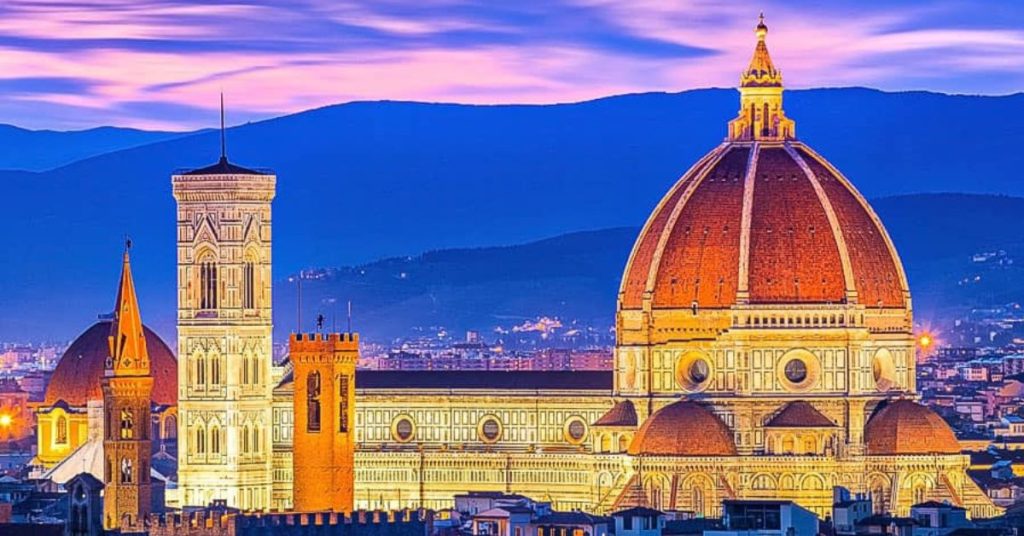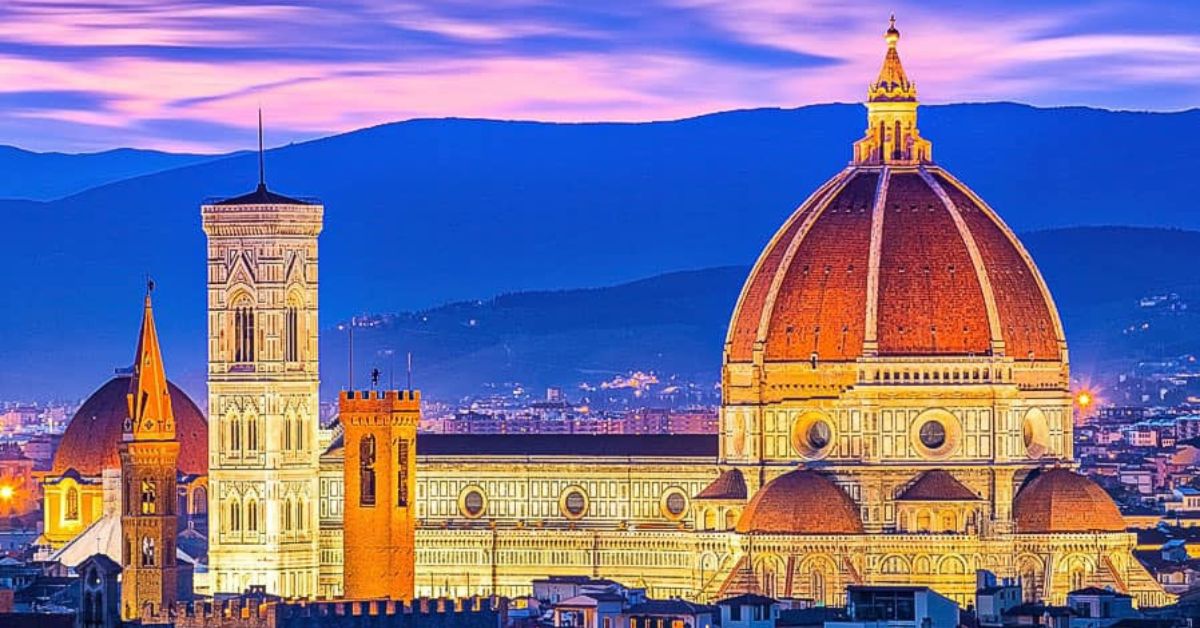Florence, the cradle of the Renaissance, is a city of timeless allure. From its awe-inspiring cathedrals and world-class museums to its charming piazzas and vibrant street life, Florence offers an experience that feels like stepping into a living, breathing masterpiece. But before you pack your bags and set off for this Italian gem, there are some essential things you need to know to make the most of your visit.

Imagine strolling through the bustling streets of Florence, your eyes taking in the majestic beauty of the Duomo, the rich history of the Uffizi Gallery, and the bustling local markets. But as you weave through the city, a lack of preparation can turn what should be a dream trip into a series of avoidable hiccups. From avoiding the infamous tourist traps to understanding local customs and finding the best spots to eat and stay, this guide is designed to help you navigate Florence with the confidence of a seasoned traveler.
Let’s dive into the essential details you need before embarking on your Florentine adventure, ensuring that your trip is as magical and memorable as the city itself.
1. Understanding Florence: A Brief Overview
Historical Significance Florence, or Firenze as it is known in Italian, is a city steeped in history and culture. Often hailed as the birthplace of the Renaissance, Florence played a pivotal role in the development of art, architecture, and politics during the 14th to 16th centuries. The Medici family, powerful patrons of the arts, left an indelible mark on the city, commissioning works from masters like Leonardo da Vinci, Michelangelo, and Botticelli. Their influence is still visible today in Florence’s stunning architecture and art.
Cultural Heritage Florence’s cultural heritage extends beyond its art and architecture. The city is renowned for its culinary traditions, vibrant festivals, and unique local customs. From the delicious Florentine steak to the annual Calcio Storico (a historic football game), Florence’s traditions offer a deep dive into its rich cultural tapestry. Understanding these cultural elements can enhance your experience, making your visit not just a sightseeing trip, but a journey into the heart of Italian life.
2. Essential Preparations
Travel Documents Before you head to Florence, ensure you have the necessary travel documents. Depending on your nationality, you may need a visa to enter Italy. Check the latest entry requirements on the official website of the Italian consulate or embassy in your country. Additionally, consider purchasing travel insurance that covers health emergencies and trip cancellations for added peace of mind.
Health and Safety Florence is generally a safe city for travelers, but it’s always wise to take some health precautions. Ensure you have any required vaccinations, especially if you’re traveling from a region with health concerns. It’s also a good idea to familiarize yourself with local health facilities and carry a basic first aid kit. The city is equipped with pharmacies and hospitals, but knowing where to go in advance can save you time and stress.
Language While many Florentines speak English, especially in tourist areas, learning a few basic Italian phrases can enhance your experience. Here are some useful phrases to get you started:
- Buongiorno (Good morning)
- Per favore (Please)
- Grazie (Thank you)
- Dove si trova…? (Where is…?) Understanding these phrases can help you navigate conversations and interactions more smoothly, making your trip more enjoyable.
3. Best Time to Visit Florence
Seasonal Considerations Florence is a year-round destination, but the best time to visit depends on your preferences. Spring (April to June) and fall (September to October) are ideal for pleasant weather and fewer crowds. Summer (July to August) brings warmer temperatures and more tourists, while winter (November to March) is quieter but cooler. If you prefer milder weather and less congestion, aim for the shoulder seasons.
Events and Festivals Florence hosts numerous events and festivals throughout the year. If you’re a fan of art and culture, the annual Maggio Musicale Fiorentino (a major music and opera festival) in May is a must-see. For a taste of local tradition, visit during the Calcio Storico in June, a historic football match with medieval roots. Keep an eye on the local calendar and consider timing your visit around these events to experience Florence’s vibrant cultural scene.
4. Navigating Florence
Public Transportation Florence’s compact city center makes it easy to explore on foot, but public transportation is available for longer distances. The city’s bus and tram networks are efficient and cover major tourist spots. Consider purchasing a Firenze Card, which offers unlimited travel on public transportation and other benefits. Taxis are also readily available, though they can be pricier.
Walking Around Many of Florence’s attractions are within walking distance of each other. The historic center is pedestrian-friendly, and strolling through its streets is one of the best ways to soak in the city’s ambiance. Don’t miss exploring the charming neighborhoods of San Lorenzo and Oltrarno, which offer a more local experience away from the main tourist areas.
Bike Rentals and Other Options For a different perspective of Florence, consider renting a bike. Several bike rental shops offer convenient options for exploring the city’s parks and outskirts. Alternatively, you might enjoy a guided bike tour that combines sightseeing with local insights. Florence also has scooter rentals, which can be a fun and practical way to get around.
5. Must-See Attractions and How to Avoid Crowds
Top Attractions Florence is home to some of the world’s most renowned landmarks:
- Uffizi Gallery: This iconic museum houses masterpieces by Botticelli, Michelangelo, and Leonardo da Vinci.
- Duomo: The cathedral’s stunning dome, designed by Brunelleschi, is a must-see. Don’t miss climbing to the top for panoramic views of the city.
- Ponte Vecchio: This historic bridge, lined with jewelry shops, offers picturesque views of the Arno River.
How to Skip the Lines To avoid long queues at major attractions, plan ahead:
- Book Tickets in Advance: Purchase tickets online for popular sites like the Uffizi Gallery and the Duomo to skip the lines.
- Visit During Off-Peak Hours: Try to visit major attractions early in the morning or later in the afternoon when crowds are thinner.
- Consider Guided Tours: Many guided tours offer skip-the-line access and provide insightful commentary about the sites.
Hidden Gems While Florence’s main attractions are impressive, the city also boasts lesser-known treasures:
- San Miniato al Monte: This beautiful basilica offers stunning views of Florence and a tranquil atmosphere.
- Rose Garden (Giardino delle Rose): A lovely spot to relax and enjoy a panoramic view of the city.
- Basilica of Santa Croce: Known for its beautiful frescoes and as the burial place of notable figures like Michelangelo and Galileo.
6. Dining and Food Etiquette
Must-Try Dishes Florentine cuisine is a delight for the senses. Here are some dishes you shouldn’t miss:
- Bistecca alla Fiorentina: A massive T-bone steak, grilled to perfection and seasoned simply with salt and pepper.
- Ribollita: A hearty Tuscan vegetable and bread soup that’s perfect for cooler weather.
- Cantucci with Vin Santo: Almond biscuits typically enjoyed with a glass of sweet Vin Santo wine.
Dining Etiquette Italian dining customs can differ from what you’re used to. Here’s how to navigate them:
- Reservations: Make reservations for popular restaurants, especially for dinner.
- Tipping: Tipping is not mandatory but appreciated. A small amount (5-10%) is sufficient if you’re happy with the service.
- Pace Yourself: Meals in Italy are leisurely affairs. Take your time to savor each course and enjoy the experience.
7. Accommodation Tips
Best Areas to Stay Florence offers a range of accommodation options. Consider these neighborhoods based on your preferences:
- Historic Center: Ideal for first-time visitors who want to be close to major attractions.
- San Lorenzo: Known for its vibrant markets and less touristy vibe.
- Oltrarno: Offers a more authentic Florentine experience with charming streets and local eateries.
Types of Accommodations From luxury hotels to cozy B&Bs, Florence has something for every budget:
- Luxury Hotels: For a pampered experience, consider staying at the Four Seasons or Hotel Brunelleschi.
- Mid-Range Options: Look for well-rated hotels like Hotel Santa Maria Novella or Hotel Spadai.
- Budget-Friendly Choices: Hostels and budget hotels, such as Hostel Archi Rossi, offer affordable rates.
Booking Tips
- Book Early: Florence is a popular destination, so book your accommodation well in advance to secure the best rates and availability.
- Check Reviews: Read reviews on travel sites to ensure the quality and reliability of your chosen accommodation.
8. Shopping and Souvenirs
Local Markets Florence’s markets are perfect for picking up unique items:
- Mercato Centrale: A bustling food market where you can sample local delicacies and buy fresh produce.
- San Lorenzo Market: Offers a variety of leather goods, clothing, and souvenirs.
Souvenir Shopping For memorable keepsakes, consider:
- Florentine Leather: High-quality leather products like bags and belts.
- Local Crafts: Handcrafted ceramics and textiles.
- Art Prints: Reproductions of famous Florentine artworks for a unique reminder of your trip.
9. Cultural Etiquette and Local Customs
Social Norms Understanding local customs can enhance your experience:
- Respect for Tradition: Be mindful of religious and cultural traditions, especially when visiting churches and historical sites.
- Politeness: Italians value courtesy. Greetings with “Buongiorno” or “Buonasera” are appreciated.
Dress Code Florence is stylish, and while there’s no strict dress code, consider these tips:
- Smart Casual: Opt for smart-casual attire when dining out or visiting attractions.
- Comfortable Shoes: Essential for walking around the city.
10. Practical Tips and Tricks
Money Matters Handling money in Florence is straightforward:
- Currency: The Euro is the currency used in Italy.
- ATMs: Widely available; use them to withdraw cash as needed.
- Credit Cards: Accepted at most establishments, but carry some cash for smaller purchases.
Safety Tips Stay safe with these precautions:
- Keep Valuables Secure: Use a money belt or neck pouch to keep valuables safe.
- Beware of Scams: Be cautious of pickpockets and avoid overly friendly strangers offering unsolicited help.
Emergency Contacts Know where to turn in case of an emergency:
- Emergency Services: Dial 112 for police, medical, or fire emergencies.
- Local Hospitals: Familiarize yourself with the nearest hospital or urgent care center.
11. What to Avoid
Tourist Traps Avoid common pitfalls:
- Overpriced Souvenir Shops: Steer clear of shops that target tourists with inflated prices.
- Tourist Restaurants: Opt for restaurants recommended by locals or travel guides.
Scams and Rip-Offs Be aware of:
- Fake Charity Collectors: Be wary of individuals asking for donations on the street.
- Excessive Charges: Check bills carefully to avoid overcharges.
Conclusion
Florence is a city of unparalleled beauty and cultural richness, but a little preparation can make your visit even more enjoyable. By understanding the essentials—from navigating the city and avoiding crowds to embracing local customs and finding the best places to eat—you’ll be well-equipped to make the most of your time in this Renaissance jewel.
So, before you set foot in Florence, arm yourself with these insights and tips. Dive into the art, savor the cuisine, and immerse yourself in the history of a city that has inspired generations. With these preparations, your Florentine adventure will be as magnificent as the city itself.

